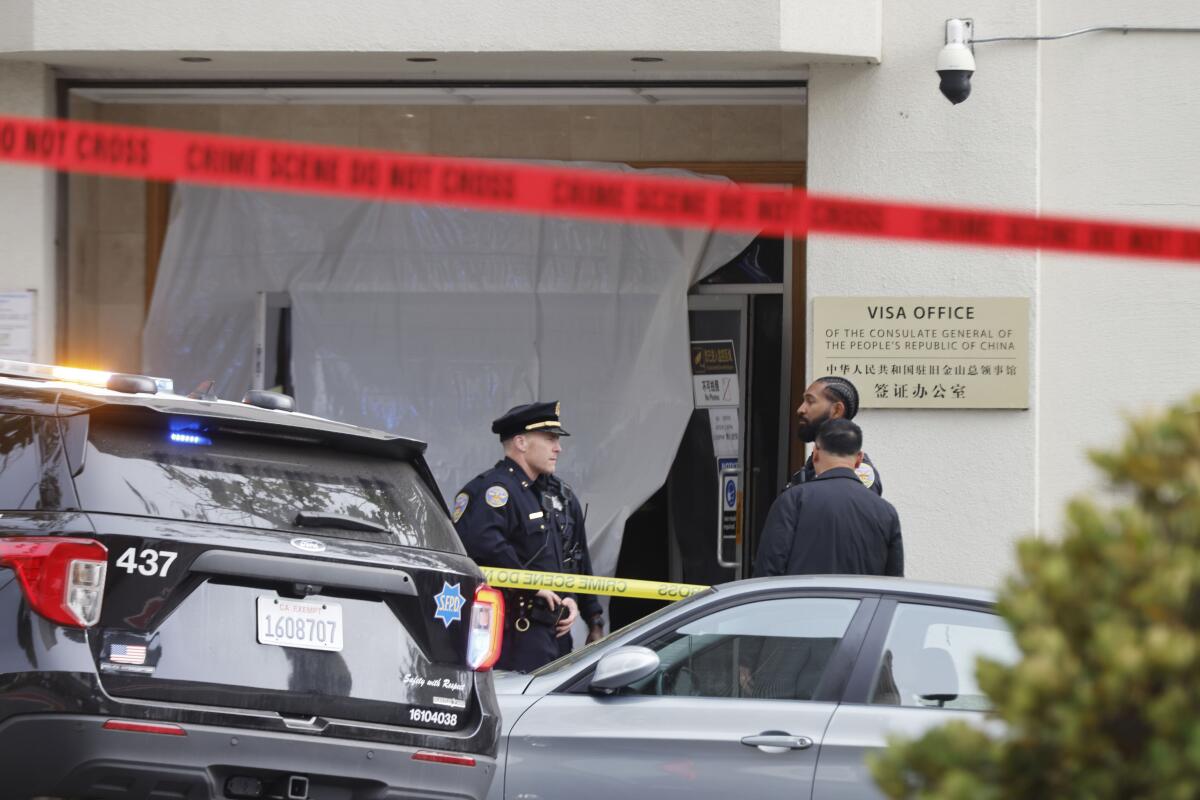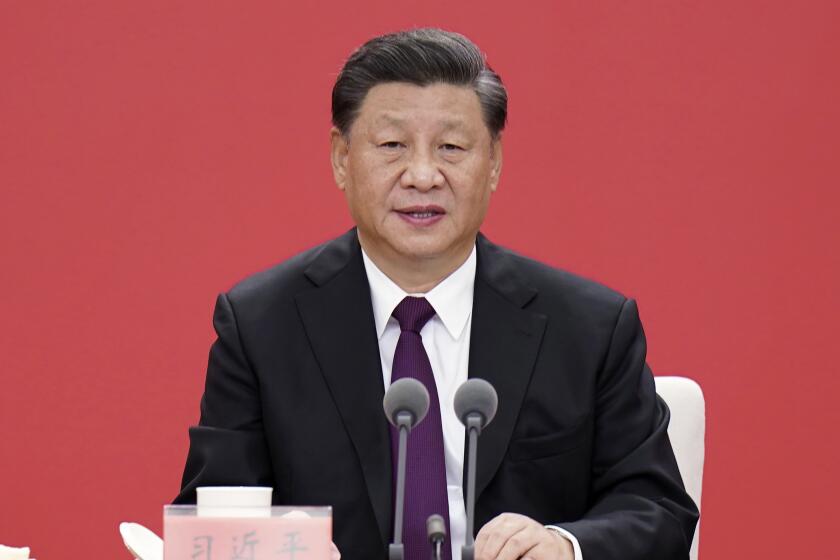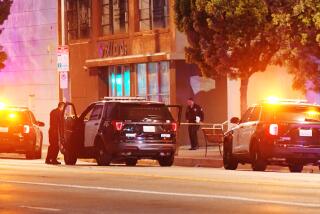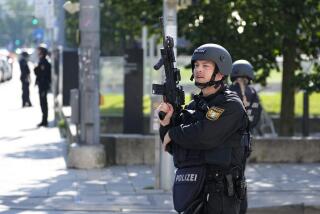Man who crashed into Chinese Consulate in San Francisco was armed with knife and crossbow

SAN FRANCISCO — A man who crashed a car at the Chinese Consulate in San Francisco earlier this month had a crossbow and arrows and slashed a knife at officers before a police sergeant killed him, police said Thursday, offering the first official details of the attack.
San Francisco police showed body-camera video from the officers who responded to the Oct. 9 attack on the consulate, which is in a residential neighborhood in the city. The video showed the car inside the consulate’s lobby and people rushing out of a damaged door.
San Francisco Police Acting Cmdr. Mark Im, speaking at a virtual town hall, said Zhanyuan Yang got out of his car, where police found a crossbow and arrows, and stood against a wall. Yang was covering his face with his left arm after a security guard sprayed him with pepper spray and hiding a knife in his right hand, Im said.
Im said Yang then turned toward San Francisco Police Sgt. Troy Carrasco, who was the first to arrive on the scene, and a consulate security guard and made “multiple, rapid, downward swinging motions with the knife” in their direction.
Carrasco can be seen in body-camera video touching Yang’s back and asking, “Does he have a gun?” before Yang, who is rubbing his face with his left arm, turns toward Carrasco and the security guard and starts slashing with the knife. The video shows Carrasco then opening fire and shouting shortly afterward: “You should have told me he had a knife!”
Yang, 31, was taken to a hospital, where he died.
A man opened fire Tuesday morning outside the Chinese consulate in Los Angeles before he turned his gun on himself, police said.
Asked why there appeared to be no attempts to de-escalate the situation, San Francisco Police Chief Bill Scott said that he was not going to make any judgments nor guess what the officer was thinking, but that officers are trained to prioritize stopping a threat when confronted with an active attacker.
Several people called 911, including one person who said the suspect had a gun, which dispatchers relayed to officers sent to the scene, though Yang did not have a gun, police said.
“If we believe that we have an active attacker event, we will do everything possible to stop that threat immediately so we don’t have a loss of life,” he said.
The crash was condemned by the Chinese government, which called it “a violent attack,” and by the White House. It took place as San Francisco prepares to host next month’s Asia-Pacific Economic Cooperation summit, a gathering of world leaders from Pacific Rim nations.
Xi Jinping’s Xinhua news agency used my work to help promote its distorted vision of life in the U.S. and China.
Police investigators have served several warrants at the San Francisco apartment where Yang lived, said Scott, who did not identify a motive.
“Why he showed up there, what he was doing — that’s still under investigation, and there’s nothing that we have at this point that I can release,” Scott said.
Sergii Molchanov was in line waiting for his turn to submit his visa documents when, he said, the blue Honda sedan barreled in through the main doors at full speed, barely missing him.
Molchanov told the Associated Press that the car struck a wall and the driver was bleeding from his head as he got out of the car, yelling about the CCP, or the Chinese Communist Party. Police arrived less than a minute later, another witness, Tony Xin, told KTVU-TV.
News Alerts
Get breaking news, investigations, analysis and more signature journalism from the Los Angeles Times in your inbox.
You may occasionally receive promotional content from the Los Angeles Times.
“A consulate is a place of safety and refuge where people should not have to worry about acts of violence,” said Capt. Jason Sawyer on Thursday. “This was a highly unusual event that could have easily involved many more casualties.”
The consulate has been targeted a number of times before. Among the most serious was a fire set by a Chinese man on New Year’s Day in 2014 at the main entrance. It charred a section of the outside of the building.
The man, who was living in the San Francisco Bay Area, told authorities that he was driven by voices he was hearing. He was sentenced to nearly three years in prison.
More to Read
Sign up for Essential California
The most important California stories and recommendations in your inbox every morning.
You may occasionally receive promotional content from the Los Angeles Times.











